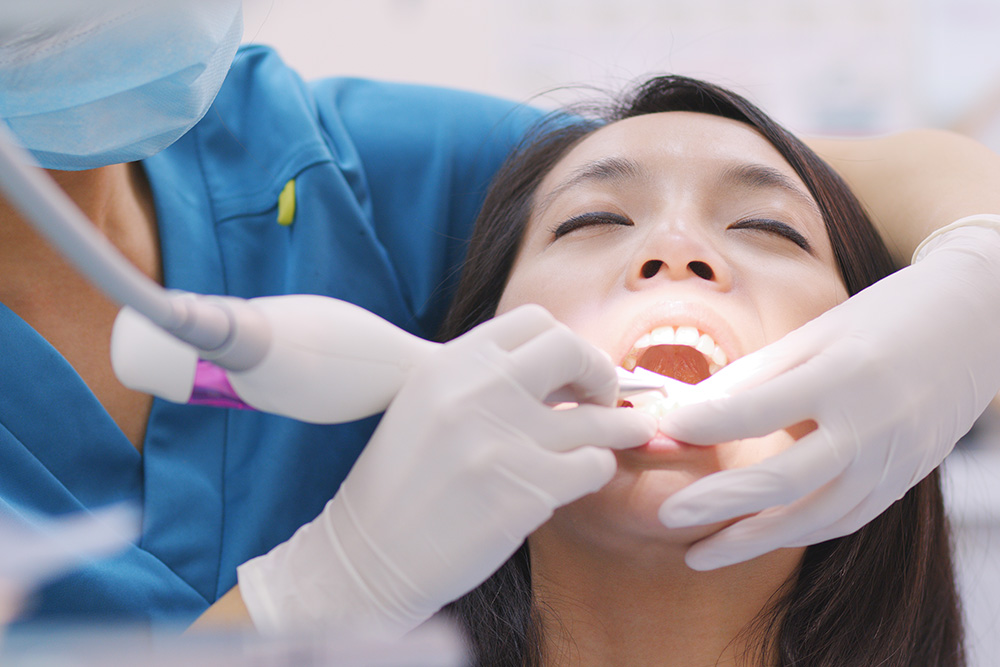Scaling and Root Planing

If you have received a periodontal disease diagnosis, it’s natural to have some questions, especially about the treatments that have been recommended for you. One of the more common approaches uses scaling and root planing to address periodontal disease.
Understanding Periodontal Disease
Also called gum disease, periodontal disease is a bacterial infection of the gums. When plaque and tartar (also called calculus) accumulate on the surfaces of the teeth, a person is at risk of developing periodontal disease. The sticky substance, plaque, helps bacteria cling to the teeth, while the hard substance, tartar, pushes the gums away from the teeth, creating pockets where bacteria can thrive.
The Risk of Not Treating Periodontal Disease
Periodontal disease causes local symptoms, including:
- Red, swollen, tender gums
- Gums that bleed easily
- Gum recession
- Pus between the teeth
- Bad breath
- Tooth sensitivity
More severe cases can also lead to issues such as the degeneration of the periodontal ligaments, loose teeth, shifting teeth, and tooth loss in addition to the degeneration of the jawbone.
Left untreated, periodontal disease also has systemic risks that can affect the health of the entire body. When bacteria from the oral infection enter the bloodstream and travel throughout the body, it can cause general inflammation. It has also been associated with serious health concerns, including diabetes, cardiovascular disease, reproductive problems, rheumatoid arthritis, dementia, and others.
Treating Periodontal Disease With Scaling and Root Planing
There are several approaches to treating periodontal disease, such as more frequent teeth cleanings and even oral surgery in the most advanced cases. Scaling and root planing, used in tandem, are two of the most commonly recommended treatments for addressing periodontal disease.
Scaling
Scaling refers to removing plaque and tartar buildup from the surface of the teeth with the use of special scaling tools. This type of scaling is similar to what patients experience during routine dental cleanings. However, it extends much further below the gum line for a more thorough cleaning.
Root Planing
Root planing is a treatment designed to smooth the roots’ surfaces, limiting the surfaces where bacteria can grow and helping to discourage future growth.
Will Treatment With Scaling and Root Planing Hurt?
Scaling and root planing treatments do extend below the gum line. For this reason, we use local anesthetics to ensure our patients do not experience any pain or discomfort during their scaling or root planing treatments.
Sometimes, patients will experience sensitivity or tenderness when the anesthetics wear off after a scaling and root planing treatment. The discomfort is, however, is usually minor and can be adequately addressed with over-the-counter anti-inflammatory medications. We typically recommend eating a diet of soft foods and avoiding overly hot or spicy foods and drinks for about 24 hours after treatment.
Comprehensive Periodontal Disease Treatment in Bucyrus
Our dentists take periodontal disease very seriously, and we want our patients to know that we offer a variety of approaches designed to treat and manage periodontal disease while restoring oral health. To learn more about periodontal disease and scaling and root planing or to schedule an appointment with our dentists in Bucyrus, we welcome you to contact Oakwood Dental today.
